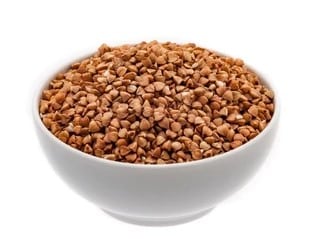

Symptoms of buckwheat allergy in dogs include itchy and inflamed skin, skin rashes and hives, vomiting, diarrhea, paw chewing, and possible respiratory problems such as coughing and sneezing.
The cause of buckwheat allergy in dogs is believed to be an allergy to proteins found in buckwheat. When the protein is ingested, it can trigger an allergic reaction in the dog’s immune system, resulting in the allergic symptoms.
The diagnosis of a buckwheat allergy in dogs usually requires performing a physical examination and history to determine the symptoms and possible causes. Your veterinarian may then do a blood test, urine test, skin scraping or else suggest an allergy test for dogs such as a skin prick test or an intradermal allergy test that injects a small amount of the suspected allergen into a dog’s skin. If these tests point to a buckwheat allergy, your veterinarian will work with you on formulating an appropriate diet or treatment for the allergy.
Buckwheat allergy in dogs can be a serious condition. Left untreated, it can cause discomfort and even potentially life-threatening anaphylactic reactions. The mortality rate of this condition is low, especially if addressed quickly and with appropriate treatment.
Treatment of buckwheat allergy in dogs involves strict avoidance of all food items containing buckwheat. This includes, but is not limited to, avoiding food for humans and other animal foods that contain buckwheat ingredients. Additionally, anti-inflammatory medication and hydrocortisone should be administered to help relieve symptoms. In serious cases, epinephrine may be used to reduce the severity of an allergic reaction. Additionally, an allergen-specific immunotherapy can be administered by an experienced veterinarian to help reduce allergic reactions over time.
To prevent buckwheat allergy symptoms in dogs, it is important to avoid any foods or treats containing buckwheat. Monitor what treats and foods your dog consumes on a daily basis, and consult with a veterinarian or nutritional expert if needed. Additionally, daily grooming and regular baths can help reduce any skin itching or irritation caused by allergens in your dog’s environment.
Dog allergies caused by buckwheat are not contagious nor do they affect humans. They are an immune reaction to an allergen that affects the skin, digestive tract, and respiratory system, which humans are unlikely to be exposed to.
Home remedies for buckwheat allergies in dogs can include the use of Omega-3 fatty acids, probiotics, or trying a hypoallergenic diet. Additionally, products containing chamomile or evening primrose oil can be helpful in soothing any inflammation caused by the allergic reaction.
While these home remedies may provide relief for dogs suffering from buckwheat allergies, please remember that they are not a guaranteed solution. The best option is to consult your veterinarian to ensure that your pup is able to get the best care and treatment possible.
Many breeds are vulnerable to buckwheat allergies, including German Shepherds, French Bulldogs, and Miniature Schnauzers. These breeds can develop an allergic reaction after ingesting buckwheat or when exposed to buckwheat pollen. Symptoms of buckwheat allergy in dogs can include sores, itching, redness of the skin, and hives. Additionally, these breeds may experience digestive issues, such as vomiting and diarrhea, after eating buckwheat. If a dog experiences any of these symptoms after eating buckwheat or being exposed to buckwheat pollen, it is best to contact a veterinarian as soon as possible.
Have you ever seen your dog exhibit any signs of a buckwheat allergy? How did they respond, and how did you feel in that moment? Did you take any action to help manage the symptoms, such as a change in food or substances in the environment? These decisions can be a difficult and stressful process, so we hope you have found success in alleviating your pup’s discomfort. Wishing you the best for your pup and your family.